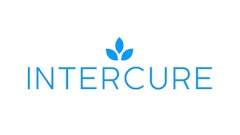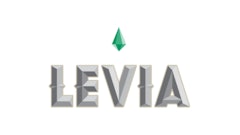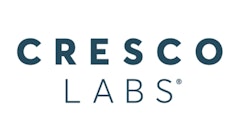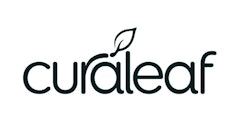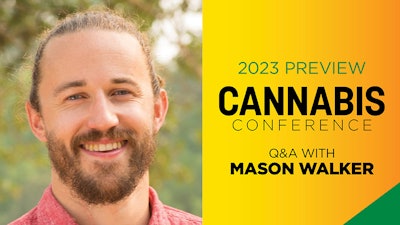
Headshot courtesy of Mason Walker
A turbulent market, plummeting prices, widespread inflation and long-term uncertainty pushed two craft cannabis companies, East Fork Cultivars and Peak Extracts, to merge in late 2022 to benefit from each other’s strengths and gain cost and operational savings.
At Cannabis Conference 2023, Mason Walker, co-owner and CEO of East Fork, will share the ins and outs of the merger, including how it enabled both companies to reduce overhead costs as well as the details of the entire process, from finding the right partner to setting the deal terms.
Here, Walker offers a preview of his dealmaking insight, which he hopes will ultimately help other small cannabis businesses feel comfortable with the process.
Editor’s note: Mason Walker will speak at Cannabis Conference on “The Untraditional M&A Deal: What You Can Learn From A Craft/Small Business Merger And How It Could Save Your Business” from 3:55 to 4:55 p.m. on Wednesday, Aug. 16. In this candid session, attendees will take away a deep understanding of the M&A deal between East Fork Cultivars and Peak Extracts and whether a similar arrangement would be a viable opportunity to breathe new life into their businesses. Visit www.CannabisConference.com for more information and to register.
Melissa Schiller: What are some of the main reasons that drove East Fork to acquire Peak Extracts?
Mason Walker: East Fork is primarily a farm-based company, and most of our revenue comes from [business-to-business ] sales. Being in the farm space, we’re all the way at the beginning of the supply chain. We knew from the beginning when we started East Fork and decided to jump from being a small medical cannabis company to being a commercial farm that, over time, we would need to move up the supply chain or the value chain to avoid being totally commoditized.
So, from the very beginning of starting East Fork, we knew we wanted to put out branded products [and] build relationships with consumers. The main motivation for acquiring Peak when the opportunity came up last summer was to take a leap forward in that plan and really expand our capabilities with value-added products, consumer packaged goods [and] advanced manufacturing to layer on top of our farm foundation in a meaningful way and not have to build it entirely from scratch—to just get a blueprint and a talented team and facilities that we could plug in and accelerate our strategic plan.
MS: What are some factors that other businesses should consider when it comes to finding the right partner for this kind of merger?
MW: These deals can get made in a lot of different ways. I think the companies that want to be acquired or need to be acquired are not always the best opportunity. If you’re going out trying to add capabilities through the acquisition of your company, the ones that are listed for sale by brokers are probably under some sort of duress or their staff might be burned out or their product/market fit isn’t great. It could be somebody is ready to pack it in and move on, but I think a lot of times willing sellers are distressed assets, and so one thing that I’ve been thinking about in dealmaking in getting ready for a future deal [is] really assessing your needs and what problem you’re trying to solve, and then [it’s] identifying who in the marketplace is a good fit for that, as opposed to seeing what’s available and then trying to plug it in. It’s beneficial to be proactive with your strategy than reactive to potential opportunities, in a way.
It so happened that our deal with Peak was a little bit of both. Peak had been running for a long time. There was a leadership change. Their founder wanted to shift, and we also were in a phase where we wanted to add those complementary things. So, the timing happened to be right. Peak was not actively listing for sale as a business, but they were ready for it, so that was a key piece for us.
MS: What are some tips for setting deal terms for this type of acquisition?
MW: I think there is some science and some art to dealmaking, to valuations, to employment contracts—all the different things that come into play with dealmaking. We tried to make our deal terms as objective as possible, and that was a collaborative effort between myself and Katie Stem, the CEO, majority owner [and founder] of Peak. We went through a process where we used trailing revenue multipliers to give us a basic valuation framework. That was value point A. And value point B was looking at our balance sheets to see what net equity we have on our balance sheets—assets and liabilities for East Fork and assets and liabilities for Peak. So, it was basic balance sheet value.
Then we looked at our intellectual property. That one’s a little bit more artistic, but we tried to put a value on East Fork’s genetic lines that have come out of our plant breeding program. Some of our most valuable intellectual property is our cultivars that we’ve developed. And then for Peak, some of its most valuable intellectual property was process-oriented. It was how they prepare material for extraction to maximize yield and quality of extracted oils. So, we tried to put an objective value on intellectual property, [and] also trade secrets—we put a value on that. And we worked that all out to this is what we think Peak is worth in total [and] this is what we think East Fork is worth in total. Our deal was primarily a stock swap, so it’s very easy. One hundred percent of stock of Peak was exchanged for a minority portion of stock in East Fork because East Fork, in the merger, was the more valuable company.
Our deal was small and was much more friends driven. Myself and Katie have a deep friendship [and] trust in each other, so we decided to do it together. In larger deals or in other deals that have less of that personal connection, getting a third-party service to help with that valuation process I think is a really good route to go. You can get a decent valuation service from a third party for a relatively small fee, so even small companies that are doing a deal can get that third-party opinion on what they think each company is worth to give a relative valuation for a fair deal.
MS: What is one key lesson that you learned from this merger?
MW: One lesson I learned is that dealmaking takes longer and costs more than you think it will. I think we went in with eyes wide open, knowing that there would be inefficiencies, there would be communication breakdowns, there would be unforeseen costs, but all those things were larger and longer than we thought, even when we were trying to soberly and conservatively estimate that. I think some of that is due to the complexity of being in cannabis, which is such a highly regulated industry. There are certain hoops we had to jump through with regulator approval, with professional services like insurance and CPAs and legal that just make it more complex, slower and more expensive to make the deal work, to make all the pieces fit together, than we expected.
I think my one main lesson I learned is to be even more conservative with timelines and with costs for dealmaking, even if the agreement is really solid. I’m really proud that the nonbinding term sheet that we came up with at the beginning and the actual executed legal definitive agreement changed very little in the real terms—almost not at all. We had a whole due diligence period with lawyers involved and the deal terms changed very little, so the foundation of the deal was really, really solid, but on the back end, all that integration work—regulator approval, professional services, financial and administrative integration—just ended up taking longer and being more expensive than any of us imagined.
The timeline is Katie and I started talking in June 2022. We had a term sheet together in July. We had a definitive, binding contractual agreement—the actual document that was the deal—done in September, but it was conditional. It was based on regulator approval. And we got regulator approval in December of last year. So, in total, the full deal cycle from initial talks to executed deal was five months, which I’m told is pretty fast for a wholesale acquisition of one corporation by another. And for the last six months—so, since December until May now—I would say that we probably just wrapped up what I’d call phase one of integration of all of our software systems, professional services, finances, all the back-end administrative integration stuff is basically done now. And that took about six months. So, in total, we’re coming up on a year from when we first started talking, and I would say the deal took half of that just to close and then another six months to really get all the primary foundational work done.
MS: What is one thing you'd like attendees to take back to their business after attending your session this year?
MW: I think that so many folks in the cannabis industry have a strong vision for what they’re creating with their company, and a lot of people are in it for intrinsic reasons. They believe in the plant, or they believe in their team or their direction. I think the main thing I want people to take away is an openness to change before it’s needed. I think in retrospect, we really needed to change our company. I’m so glad that we made the deal when we did, before it felt like we really needed to change. So, I think the main takeaway I want people to have is a little bit more comfortability and openness to dealmaking as a way to really shift and pivot before you’re trapped under duress or in a bad way. And I think the way that the market is right now for cannabis, M&A is a really powerful tool, a strategic tool that companies should use to navigate an industry full of headwinds.
I want to demystify M&A and dealmaking. I’m not a financial expert. I don’t have an MBA. I’m not a corporate trained person. I’m a scrappy farm entrepreneur, and I was able to put a professional M&A deal together. So, I really want to demystify the dealmaking process and make it feel doable for other small cannabis companies as a strategic path forward.
Editor’s note: This interview has been edited for style, length and clarity.
Join us this year at the Paris Las Vegas Hotel & Casino for Cannabis Conference, the leading education and expo event for plant-touching businesses.
















